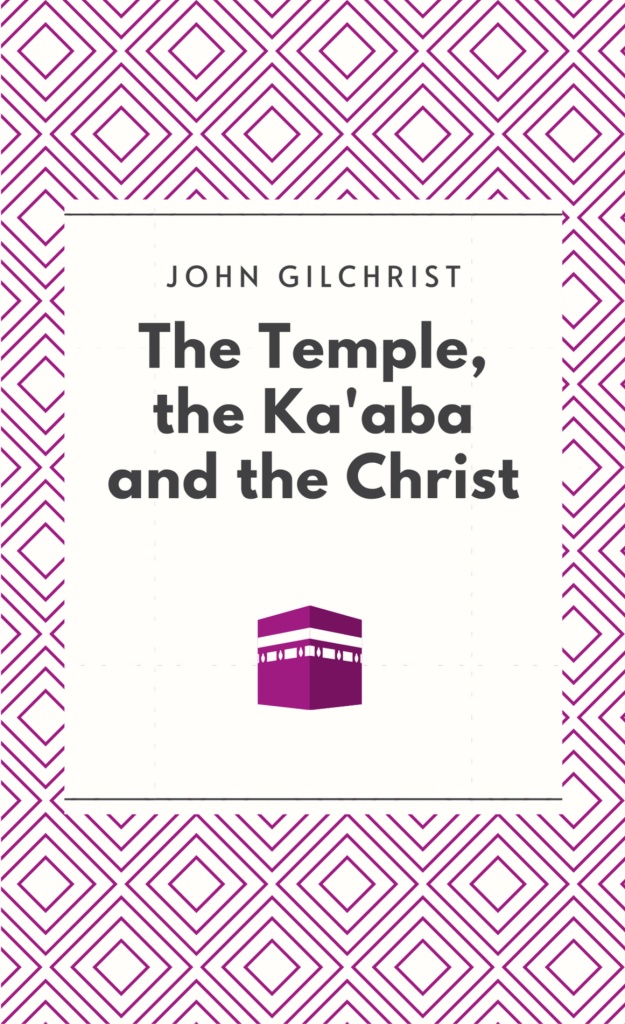The Original Temple of Solomon
The Temple, the Ka'aba, and the Christ


Chapters
« Ch. 2 - The Temple of Judaism
When the Israelites came to Canaan (later known as Israel and Palestine), this shrine remained with them and was at all times the holiest place for the nation. During the succeeding centuries it was housed in a tent at various places but the prophet David, during his reign as King of Israel, decided to ensure that a permanent structure would he built to house the ark and the mercy-seat. God prevented him from building such a shrine during his lifetime but promised that it would be built by his son Solomon:
"When your days are fulfilled and you lie down with your fathers, I will raise up your offspring after you, who shall come forth from your body, and I will establish his kingdom. He shall build a house for my name". 2 Samuel 7:12-13.
As soon as David died, Solomon became King of Israel. At the beginning of his reign he declared:
"I purpose to build a house for the name of the Lord my God, as the Lord said to David my father, 'Your son, whom I will set upon your throne in your place, shall build the house for my name'." 1 Kings 5:5 Solomon built a great Temple to house the ark and mercy-seat. God promised that his divine presence would continue to remain with the people of Israel in the Holy of Holies which now became a cubic structure in the centre of the Temple. This building was a magnificent edifice and was built with gold, hewn stones and cedars from as far afield as Lebanon. When it was completed Solomon ordered the chief priests to bring the ark of the covenant to the Temple and it was, at his command, placed in the most holy place in the centre of the building (1 Kings 8:6). When the priests came out of this holy place in the middle of the Temple,
"A cloud filled the house of the Lord, so that the priests could not stand to minister because of the cloud; for the glory of the Lord filled the house of the Lord." 1 Kings 8:10-11.
With great joy Solomon blessed God and praised him that his divine presence was to be manifested henceforth in the Temple he had built. He declared his joy in these words:
"I have built the house for the name of the Lord, the God of Israel. And there I have provided a place for the ark, in which is the covenant of the Lord which he made with our fathers when he brought them out of the land of Egypt". 1 Kings 8. 20-21.
Immediately, conscious of the fact that however splendid his Temple was, it could not possibly reflect the glory of God or contain his eternal being, Solomon added this prayer:
"But will God indeed dwell on the earth? Behold, heaven and the highest heaven cannot contain thee; how much less this house which I have built! Yet have regard to the prayer of thy servant and to his supplication, 0 Lord my God, hearkening to the cry and to the prayer which thy servant prays before thee this day; that thy eyes may be open night and day toward this house, the place of which thou hast said, 'My name shall be there', that thou mayest hearken to the prayer which thy servant offers toward this place. And hearken thou to the supplication of thy servant and of thy people Israel, when they pray toward this place; yea, hear thou in heaven thy dwelling place; and when thou hearest, for give". 1 Kings 8:27-30.
In acknowledging God's omnipresence, Solomon nevertheless expressed his desire that God should be honoured at this place and that every Israelite, no matter where he might be, should face toward the Temple when he prayed. In time the Temple became not only the qiblah of the Jews but the centre of all their major festivals as well. Sacrifices had previously been offered only at the tabernacle and now could only be offered at the Temple. Accordingly Jews flocked to Jerusalem at the major feasts to offer the necessary sacrifices and draw near to God in communal worship. God's presence was manifested in the Temple and so it was proper for the Jews to face the building containing his presence whenever they prayed to him.
Solomon's Temple lasted about three hundred and fifty years and was finally destroyed when Jerusalem was sacked by the armies of the Babylonian king Nebuchadnezzar (the incident is referred to in the Qur'an in Quran 17.7). Judaism was no longer the religion it had been in Solomon's time. Israel had turned her back on the Lord and the people had opposed and rejected the prophets he had sent to them. As a result of this tragic national apostasy, God withdrew his presence from the Temple and gave it over to the hands of Israel's enemies.